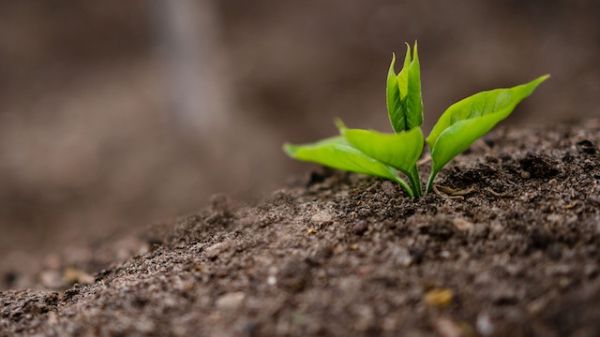19 Educators Recognized for Advancing Sustainable Education

Teaching sustainability in the classroom hasn’t been without its challenges. Whether it's a lack of support from the upper management, teacher training, or simply resources, when it comes to sustainability, most educators have struggled to introduce it into the curriculum.
Integrating sustainability into the education system requires support and motivation from numerous stakeholders—teachers, senior management, parents, and even the surrounding community. Now, after several decades, the tides are starting to shift. More educators are actively advocating for education for sustainable development (ESD) and some are introducing their own lesson plans and projects to engage their students in environmental and societal issues.
Recently, Sustainable Earth, an online sustainability resource created by Arizona State University, recognized nearly 20 educators from throughout the U.S. as part of its Sustainable Earth Educator Awards for their efforts in advancing sustainable practices through curriculum, activities, or other school-wide initiatives.
The following are just two examples of the innovative ways educators are working to engage students in environmental and societal education.
Project: Pollinator and Produce Gardens
At Queen of Peace School in Salem, Oregon, environmental education instructor Maureen Foelkl helped create a program that aimed to integrate a STEM component into all grade-level outdoor education experiences to assist in problem-solving using exploratory learning.
The program revolves around the school’s pollinator and produce gardens in which students from pre-kindergarten through fifth grade learn about various aspects of the environment by taking at least three off-campus field trips to study and explore biodiverse ecosystems. In addition, all students contribute to the school’s pollinator and produce gardens by planting native plants, caring for the garden, and harvesting the produce which they get to taste and donate to the local food share program. Students also learn about the seven principles of “Leave No Trace” in the process.
Learning objectives were woven into the broader curriculum, some of which include:
- Science — Students learn about the parts of a plant, companion planting techniques, beneficial insects, and plant matter decomposition.
- Math — Students measured plots and planned planting areas, read a compost thermometer, graphed temperatures over time, documented the growth mathematically, and calculated germination rates.
- English — Students were introduced to literature that focused on their garden theme and students also wrote a description of what they saw in their notes.
- Art — Students created signage for the garden. Natural drawing instructions were incorporated.
- Social Studies — Fourth-grade students, for example, researched gardens that were planted by Native cultures.
- Physical Education — Students developed both fine (planting tiny seeds) and gross motor skills (maintenance of their garden space) while building fitness in the garden.
The program focuses on collaboration and spiraling the lessons through all grades. For instance, where pre-kindergarten students explore plant growth, decomposition of natural materials, bird and insect observations, and stream flow, third-grade students are busy following the life history of the Chinook salmon.
“I’ve learned new teaching methods by collaborating, sharing ideas, and evaluating outdoor experiences with the classroom teachers,” Foelkl said. “Building curriculum not only for out-in-field experiences but also how might teachers expand the unit of study to include standards that must be taught. This required me to reach out to experts and to take workshops that I was able to share with the staff.”
Foelkl said collaboration and stakeholder engagement has been key to the program’s success. And these stakeholders include students, families, school staff, administrators, and community members.
“I would encourage educators to form an alliance that includes an administrator that can embrace your vision,” Foelkl said. “Don’t forget to create a diverse committee (stakeholders) that meets on regular bases with an agenda to show that their time is a valuable asset. Your local Green School coordinators are happy to assist schools with programs that align with your school goals. Don’t forget your Department of Education that will guide you through projects that will enhance the academics and social-emotion aspects of projects completed outside. Be fearless. Don’t be hesitant to ask for guidance.”
Lesson Plan: Farming for Life
On the other side of the country at Flanagan High School in Pembroke Pines, Florida, science teacher Dionne Reid is teaching students about sustainability through the eyes of Florida farmers.
The lesson plan utilizes a series of short videos that take students inside local farms to learn about a part of the supply chain process of farming while exploring the role each farm plays in the sustainability of the state. The object is for students to be able to analyze the impact individuals have on environmental systems and how human lifestyles affect sustainability.
During the 75- to 90-minute plan, students are divided into small groups and assigned a farm video. They answer questions about the farm and write a summary. Students develop T-charts that explore the impact on the environment and present their findings to the class. The entire class then works collaboratively to develop a definition of what sustainability means to them.
Working together to share lesson plans, projects, resources, and key learnings will prove critical to getting more sustainable education in classrooms. In the coming weeks, several of the below plans and projects will be shared on the Sustainable Earth website to provide inspiration and ideas for other educators.
The 19 educators recognized by the SEEAs include:
Lesson Plan Winners:
- Hetal Desai, C.O. Greenfield Elementary School, Arizona
- Londra Hunter, Career Development Center (program name), Mississippi
- Lushanya Echeverria, Montecito Community School, Arizona
- Dionne Reid, Charles Flanagan High School, Florida
- CC Garrett, Farmhands: The Farm to School Program at Agritopia (program name), Arizona
- Kim Alvin De Lara, Butterfield Elementary School, Arizona
- Kim Hunt, C.C.A. Baldi Middle School, Pennsylvania
Project Report Winners:
- Andrew Centanni, Corona del Sol High School, Arizona
- Aislinn Benfield, Reach Cyber Charter School, Pennsylvania
- Katy Gazda, Skyline High School, Arizona
- Maureen Foelkl, Queen of Peace, Oregon
- Jessica Davis, IUPUI, Indianapolis
- Patricia Brownlee, Attucks Middle School, Florida
- Mary McDonald, Fountain Hills Middle School, Arizona
- Kim Klinko, Tierra del Sol Middle School, California
- Katherine Elizabeth and Kehaulani Janicki Kihoi, Kapunahala Elementary School, Hawaii
- Patrick J. Walsh, Catlin Gabel School, Oregon
- Monika Moorman, Central Park Elementary School, Florida
- Taylor Adams-Mehner, Valley Christian Schools, Arizona
For more information, please contact Katelyn Armbruster, program manager for Arizona State University’s Walton Sustainability Solutions Services under the Global Futures Lab.


